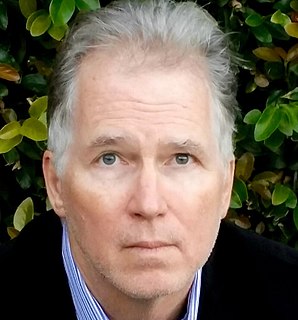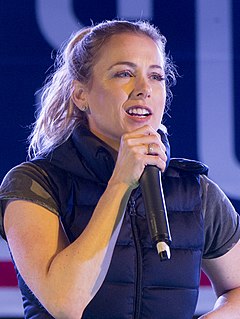A Quote by Esme Creed-Miles
I personally feel like the conversation around feminism has advanced a lot. People are starting to realize privileged white feminism isn't cutting it. We have to look at the holistic experience of all women, or assigned women, on the planet.
Related Quotes
There are many feminists who work in the media, and they think that feminism is very important. It is in their own lives, but mostly feminism has had an impact among privileged women in the advanced Western countries. For the most part, it hasn't begun to touch the lives of poor and working women in the Third World, and that distresses me.
I had a real come-to-Jesus a couple of years ago when I started to see the direct line between feminism and everything else - feminism and climate change, feminism and poverty, feminism and hunger - and it was almost like I was born again and started walking down the street and was like, "Oh, my God, there are women everywhere! They're just everywhere you look. There's women all over the place!"
I feel like so much of mainstream feminism springs from the second wave, which was essentially a discourse spearheaded by white, cisgender, upper middle class women. I feel - especially as I'm trying to negotiate this new female space with the feminism that's available to me - there are a lot of places where I'm disenfranchised.
I think feminism has always been global. I think there's feminism everywhere throughout the world. I think, though, for Western feminism and for American feminism, it not so surprisingly continues to center Western feminism and American feminism. And I think the biggest hurdle American feminists have in terms of taking a more global approach is that too often when you hear American feminists talk about international feminism or women in other countries, it kind of goes along with this condescending point of view like we have to save the women of such-and-such country; we have to help them.
People sometimes say that we will know feminism has done its job when half the CEOs are women. That’s not feminism; to quote Catharine MacKinnon, it’s liberalism applied to women. Feminism will have won not when a few women get an equal piece of the oppression pie, served up in our sisters’ sweat, but when all dominating hierarchies - including economic ones - are dismantled.
On Girls I like being a mouthpiece for the issues I think young females face today. It’s always shocking when people question whether it’s a feminist show. How could a show about women exploring women not be? Feminism isn’t a dirty word. It’s not like we’re a deranged group who think women should take over the planet, raise our young on our own and eliminate men from the picture. Feminism is about women having all the rights that men have.
I get very frustrated when I hear women saying, "Oh, feminism is passé," because I think feminism means empowerment. Men can be feminists, too! Many men are feminists. We need feminism. It's not against men; it's about the empowerment of women. It's the respect of women - giving women equal rights, the same opportunities.
Much of the appeal of feminism is that it encourages women to do what they always felt like doing anyway: take everything personally. But to succeed at the highest level, you need some objectivity, which feminism hates. Feminists see objective reality as a conspiracy out to make them feel bad about themselves.
All year there have been these cover stories that the women's movement is dead and about the death of feminism and the post-feminist generation of young women who don't identify with feminism - and then we have the biggest march ever of women in Washington. More people than had ever marched for anything - not only more women, but more people.
Though women may appear equal in some ways, and though we definitely have accomplished a lot, the fact is one in one women will still experience sexual violence at some point in their lives; a mere 17 percent of the U.S. Senate is female; women still only make 77 cents for every man's dollar - and that's not even taking into consideration global issues like sex trafficking or honor killings. We still need feminism, it's just not as easy for people - especially people in an incredibly privileged country like America - to always see that.


































